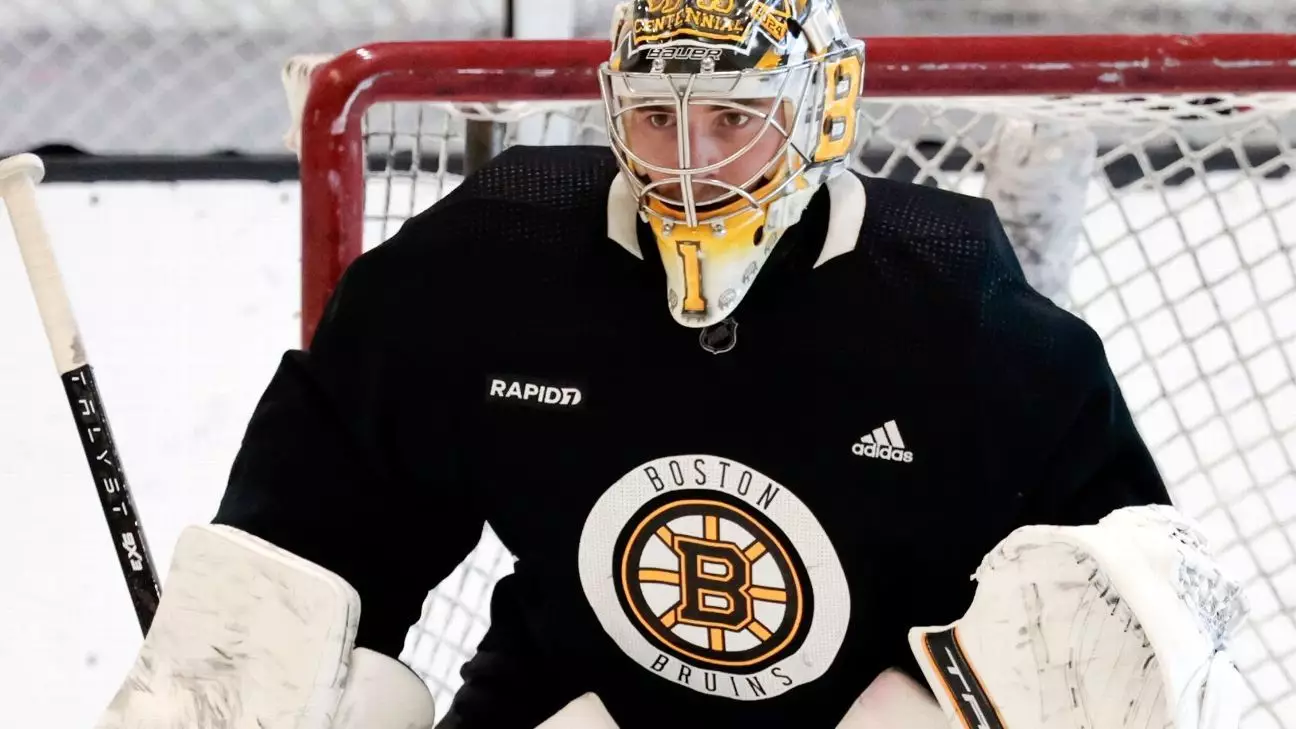The escalating contract dispute between the Boston Bruins and their young goaltender, Jeremy Swayman, serves as a case study in the complexities of professional sports negotiations. Both sides are at an impasse, which has generated headlines and speculation as the NHL season approaches. This article delves into the ongoing situation, examining the perspectives of the team, the player, and their respective stakeholders, while also considering the implications for the Bruins‘ season ahead.
At just 25 years old, Swayman has proven himself as a capable goaltender in the NHL, boasting a record of 79 wins, 33 losses, and 15 ties, along with an impressive .919 save percentage. His performance has been instrumental in establishing the Bruins as a formidable team in recent seasons. However, with unrestricted free agency looming, Swayman seeks a contract that reflects his worth and potential to impact the game. The situation has become convoluted, as both the Bruins and Swayman’s camp have offered conflicting narratives regarding the length and value of the proposed deal.
The Bruins‘ decision to trade their other goaltender, Linus Ullmark, highlights the increasingly desperate need to finalize Swayman’s contract. According to team president Cam Neely, the franchise believes Swayman has the potential to redefine the market for goaltenders, a notion that Swayman’s agent, Lewis Gross, has vehemently contested. The reported figures and expectations from both parties reflect a deeper clash in values and opinions.
One of the most notable aspects of this dispute lies in the communication—or lack thereof—between Swayman’s representatives and the Bruins. Following Neely’s comments at a press conference, Gross took to social media to dispute the figures thrown into the conversation, emphasizing that discussions about a $64 million contract were unwarranted and invalid. This public airing of grievances underscores a significant breach of trust and highlights the challenges faced when negotiations spill into public view.
Gross’s comments suggest a need for discretion in such matters, indicating that his camp felt blindsided by the team’s statements. By circumventing the more traditional channels of negotiation, such as face-to-face discussions, both parties may have deepened the divides that exist—not only over money but also in the way they perceive the value of Swayman’s contributions.
The ongoing uncertainty surrounding Swayman’s contract has significant implications for the Bruins as they prepare for the upcoming season. With the expectation that Joonas Korpisalo will start in net, Swayman’s absence from training camp could create a ripple effect that alters team dynamics. Not only does the team lose a talented goaltender, but the absence of Swayman also may impact the morale of the locker room, as players look for stability in key positions.
General Manager Don Sweeney appears to be navigating treacherous waters, facing criticism for not securing Swayman’s contract prior to trading Ullmark. Although Sweeney maintains that the timing of these decisions is not connected, the reasoning falls under scrutiny. NHL teams must contend with salary cap constraints and player workload, and the trading of Ullmark raises questions about foresight and planning. The pressing need for clarity surrounding Swayman’s future could hinder the Bruins‘ ability to fully commit to their strategies during the early stages of the season.
Looking ahead, the necessity for Swayman to seal a deal by December 1 for it to take effect this season adds urgency to the situation. His recent choice to skip training camp indicates that he is taking a stand in negotiations, signaling to the Bruins that the current terms are unacceptable. As discussions continue, both sides may need to recalibrate and explore compromises that can pave the way to a fruitful resolution.
Given the reported interest in a long-term deal, the implications of Swayman’s future will linger over the Bruins throughout the season. If an agreement is reached, Swayman could evolve into one of the top-paid goaltenders in the league, which may affect how the Bruins manage their salary cap long-term. Conversely, if the standoff persists, it will continue to cast a shadow over the team’s ambitions this year, as they must forge ahead with a goalie situation that lacks the comfort of a definitive long-term plan.
The ongoing saga between Jeremy Swayman and the Boston Bruins reflects the delicate balance of professional sports negotiations. As both parties strive for their respective goals, the outcome remains uncertain—pointing to the complexity and high stakes that define the world of professional athletics.


Napsat komentář